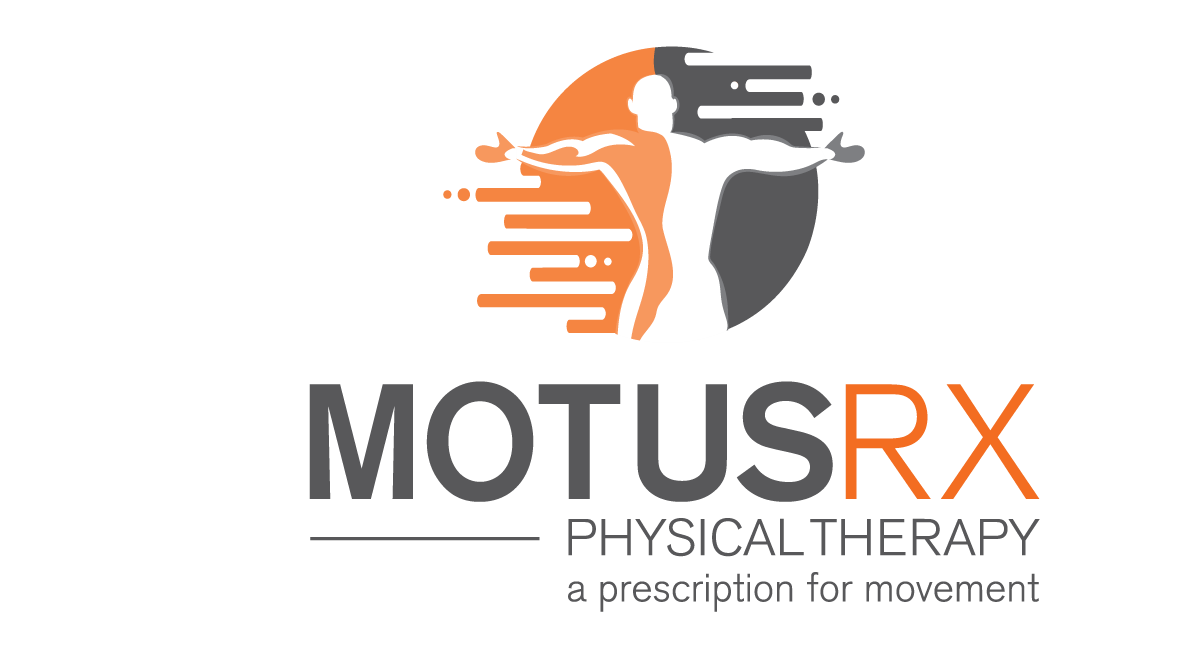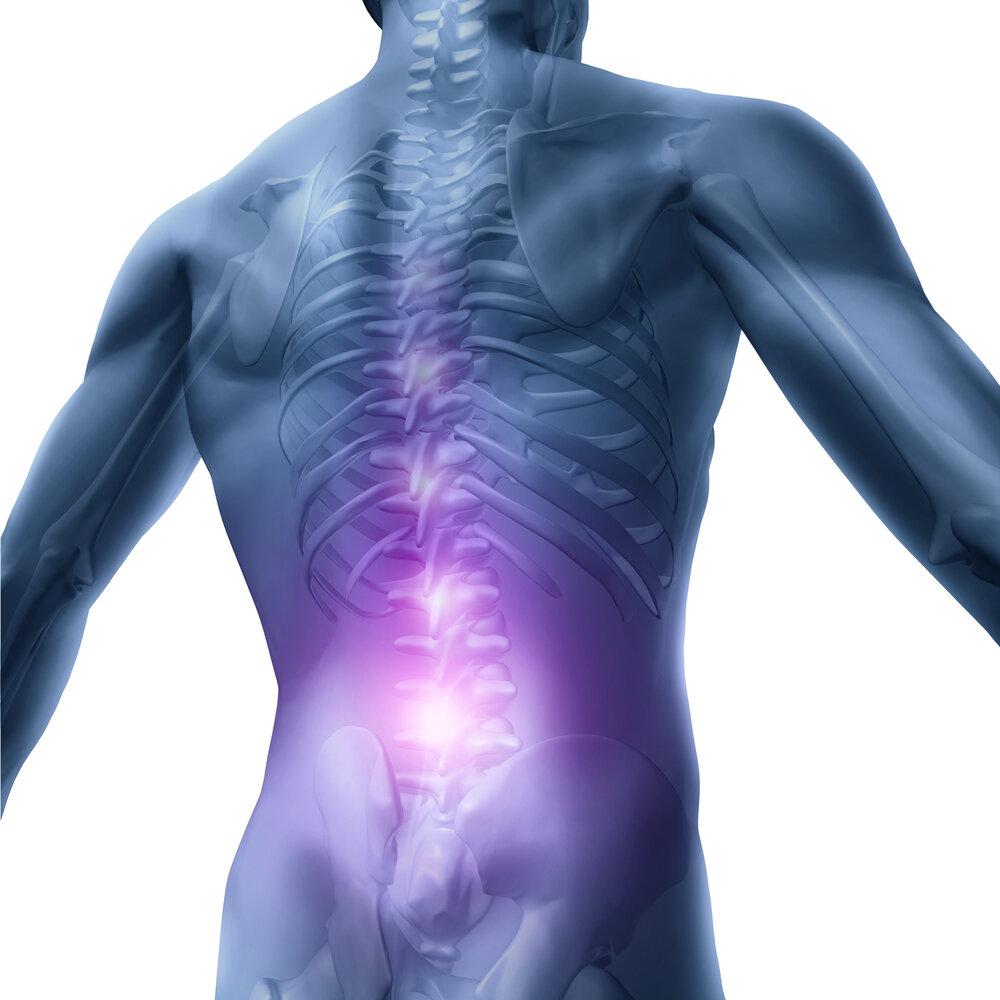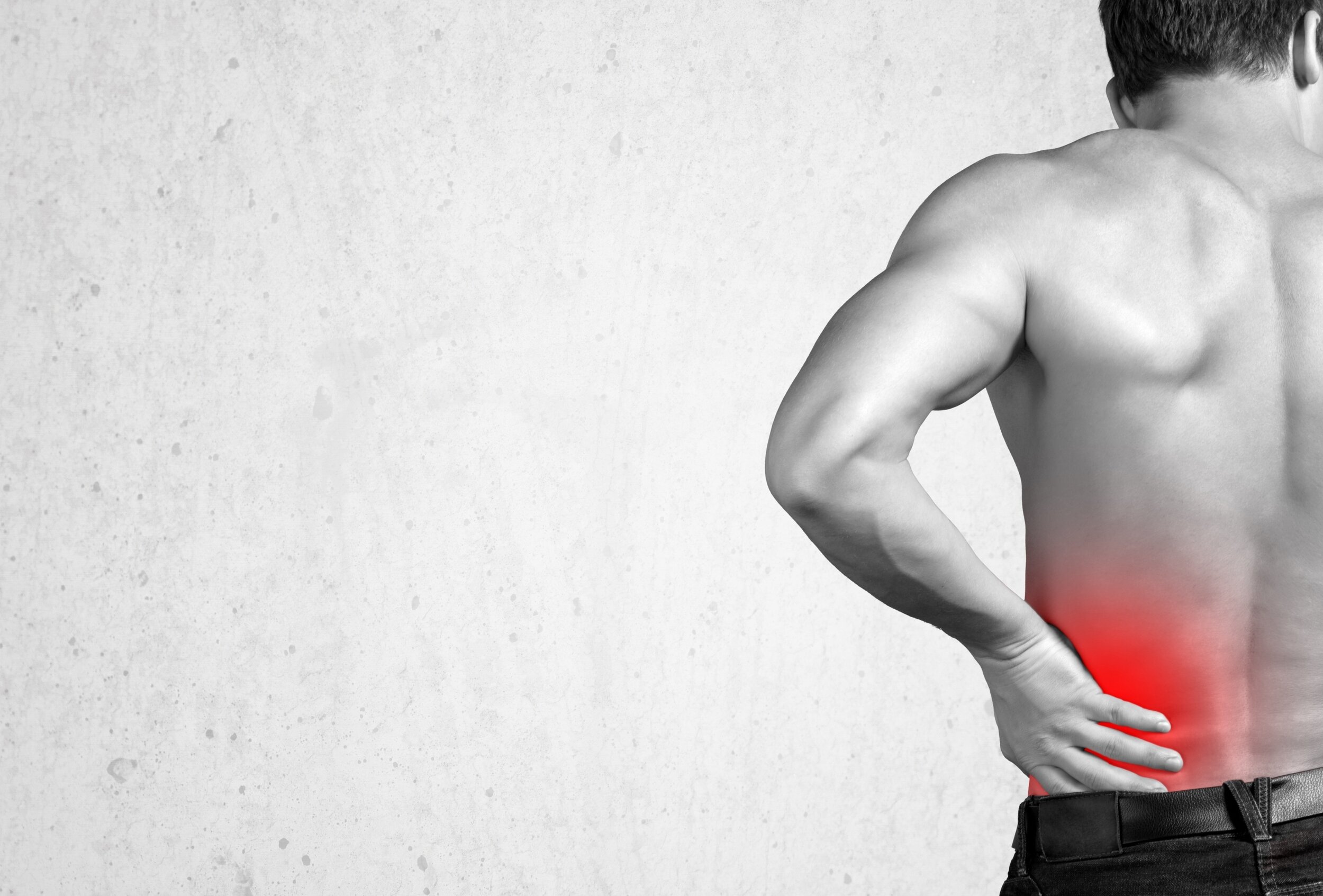How to Cure Your Back Pain Hangover
Today we are coming in hot talking about back pain. Specifically, why your back pain is not improving OR why you have gotten back pain AGAIN for a 2nd, 3rd, or 4th time. Really, I am talking about back pain because this is going to be the kick off of our topic for the month of July! Although this blog is specifically for back pain, this can apply to any type of pain.
I hope everyone is doing well! I am currently writing this in my kitchen right now. It is a dynamic existence in my week because as of 3:30 p.m. Friday (6/25) I was informed our parking lot at Motus Rx Physical Therapy was going to be torn up, repaved, raised, filled, and all sorts of good stuff that I am not going to complain about for one second because 3 years ago Motus Rx Physical Therapy got flooded out of the office. I am happy something is being done about it, but with that said, you have the pleasure of reading my kitchen wisdom!
Again, I hope everyone is doing well and I am really REALLY excited. In case you haven’t noticed, or are not following us, we have a new face at Motus Rx. Haley Hestekin is our Marketing Manager and will be helping us with all things marketing. She’s off to a great start, I apologize in advance (not really), because you are going to be seeing a lot more of me, a lot more of the team, and you’re going to be learning more about what we do and getting some great content. Obviously there will be some fun content as well just to get to know a little bit more about what it is that we actually do here in case you do not know. I like to think that what we do is PRETTY DANG AWESOME.
3 REASONS YOUR BACK PAIN IS NOT GETTING BETTER
Getting back to the topic at hand today, we are going to talk about back pain. Specifically, the 3 reasons that your back pain is not getting better OR why you are continuing to get back pain time and time again. I will kick this off by saying that I apologize (once again, not really), because I do not want to offend anybody but I will be coming in with a little bit more opinion and bias than normal because this is what I do and see every single day. If somebody has any questions or alternate viewpoints, raise your hand and say, “hello, I might think otherwise.” I would love to hear it and all about it. I am allowed to change my mind, we all are, and how I think about things today is definitely different than how I thought about things 5 years ago. How I think about things 5-10 years ago from now might be different as well. So, this is the 3 things about back pain that I know, right now, that seem to be a common an issue for people.
If you have a pen and paper, a notepad on your phone, or whatever handy I do recommend writing these down and thinking about them. They are not going to be earth shattering or drastically sexy things, but once you stop and think about them a little bit they are going to be very VERY impactful for you.
THE NUMBER ONE REASON YOU ARE HAVING BACK PAIN
The number 1 reason why you are having back pain or why you continue to get repeat episodes of back pain is that the treatments that you are receiving or attempting are not addressing the underlying root cause. I am going to start this first topic by going over the idea of second-order consequence. The best analogy that I have for you is when we are addressing our pain/back pain we are addressing the second-order consequence.
What do I mean by second-order consequence? Well, it is the equivalent of: I go out for a fun night of drinking because my Milwaukee Bucks win the world championship in the NBA (which unfortunately as it stands today is looking more and more unlikely), but let's just say that happens. So I go out and have a little bit of fun with my buddies, my wife, with whoever have been watching our poor Bucks struggle for as long as we can remember and I have a little bit too much fun. I wake up the next morning and have a little bit of a headache, feel dizzy, and just don’t feel like I normally would. So I reach for ibuprofen, a big glass of water, or whatever is going to help me get over that hangover. The hangover is the second-order consequence of what happened the night before. Had a little bit of fun. Probably chose to do some things that maybe I wouldn’t normally otherwise do because I was just so excited to be celebrating the Milwaukee Bucks. The second-order consequence is that tomorrow I am going to wake up with a headache, feel dizzy, and not feel like my best self.
The equivalent in our world of musculoskeletal health, orthopedic health, and back pain is essentially very similar. A lot of us are treating the headache, the nausea, or the dizziness from the next day with our back pain. We are treating the symptom, the after effect, or the second-order consequence BUT we are NOT addressing the underlying issue. I know it sounds too good to be true, but take a minute to think about what you have tried or what others have tried when it comes to back pain or any pain. Maybe you have tried (and bear in mind, some of these things I do and I use with people in a plan) ice, heat, spinal manipulation or adjustments, soft tissue massage, dry needling, elevating, or compression. All of those are reactions to the second-order consequence and are addressing the symptoms (and again, I do some of these things all the time with good results. But I do these in a whole plan of care and an ordered sequence in an organized fashion. I don’t only treat the symptom and neglect what caused the symptom in the first place). Think about treatment for musculoskeletal back pain and the second-order consequence. Are you really REALLY addressing the underlying cause or are you just putting the proverbial band aid over your symptom. I mean that with respect to you or to other practitioners (or even myself) who do these things. You have to understand that it is okay to use these things, but you have to know the why and how they are part of a bigger plan and picture. If you are sticking with those things 100% because you think that is going to address the underlying cause, that's where a lot of us are missing the boat.
What’s the one thing that I left out of all of that? SURGERY. Surgery is a treatment or a band aid for a second-order consequence. Now, surgery is necessary in certain situations, don’t get me wrong. But, so many times we are quick to go under the knife or quick to read the MRI, and so many times (I’m talking 7 or 8 times out of 10) it may not have been necessary. Those are all things that I want you to think about and come back to the process of why is this happening. What is the underlying cause? Is somebody giving me a full evaluation and an assessment? I don’t need to go into all the boring details, but is somebody listening to me? Is somebody asking me what am I limited by? What are my triggering factors? What makes it feel better? What have you tried for it? How are you doing psychologically? How are you doing with your weight, nutrition, and sleep? And are they giving you a rock solid (at a bare minimum) full body musculoskeletal evaluation to try and figure out why? Then, I can’t sit here and say that individual has done everything that they possibly can or controlled everything that they can control for their current or repeat episode of pain/back pain.
So, getting treatments that do not address the underlying causes, and only getting those treatments, is the number one reason people are having back pain or getting repeat episodes of back pain. Bear in mind, the reason I say it is one of the reasons for getting back pain if it's your first time because a lot of the people who are getting back pain are not doing the things that would prevent or reduce the likelihood of back pain. Really it comes down to, not doing some of the exercises that you could be doing proactively to address your back pain and underlying cause.
So, questions on that, make sure that you reach out and let me know more about your experience. Also, if you think I am full of you know what, please reach out, I would love to hear from you.
REASON NUMBER 2 YOU ARE HAVING BACK PAIN
Reason number 2 is another one that is going to be hard to hear and I apologize if you are upset by it, but you and I or whoever has back pain frustrations, are not seeing the whole process through.
The problem that I typically see is that people either expect way too much way too soon (they want to be better in 1-2 sessions, 1-2 days, or 1-2 efforts at something) but unfortunately do not have the patience, consistency, or determination to see the thing all the way through. They lose the faith to see over the top of it so they give up early. That is human behavior 101. We want things now. If it does not happen, we lose faith. If it isn’t easy or doesn't happen like we want, or don’t have our expectations managed, we are quick to pull the plug and say, “i’m done with this.” I’ll get into #3 and this will lead into the 3rd problem, but what we have to address is that we need to (what we are going to talk about soon) give point #3 enough time to actually happen. The things that we need to do to ease back pain don’t happen overnight. I wish it did, but it doesn’t. It’s not human physiology. We need to give it the time and trust the process. We need to have our expectations managed. Really, that boils down to me, the practitioner (or whatever practitioner you are working with), making sure your expectations are in alignment with what they are recommending or having that communication be there. If you think you are getting better in a session or two or a week or two, for an issue that has likely been taking years, if not, decades to develop, it's just not realistic.
The other end of the coin, and we see it frequently in our clinic, is you actually feel better too quickly. You have this problem and frustration, so you go and see somebody (hopefully like me) that is going to do something to put out the fire. They are going to do something to give you some quick wins so we can build some confidence to get to the higher level things that we need to do to make this process stick and see all the way through. The treatment that the person does makes the person feel good in a quick amount of time, and so you say, “holy smokes, my symptoms are gone. I’m feeling good, I don’t need to see this buster anymore, I’m out the door to run a marathon.” And then boom, right back with avengence, the problem returns. It might actually return and then some because we didn’t actually address the underlying cause, we addressed the pain or the perception of pain. Make sure that you are seeing the process through. Just because we feel good and our pain is down does not mean that we have gotten to the bottom of the iceberg, just to the tip of the iceberg.
And I will add just a little extra bonus tip, and this is a whole different podcast, but your pain experience and your actual physiology are 2 completely different things. I know it is going to be challenging to wrap your head around (it’s still challenging for me, believe it or not), but what you are experiencing pain-wise and what is actually happening physiologically don’t always have a direct correlation. You can be a mess physiologically and not have a lot of pain. You can be pristine physiologically and have a boatload of pain. Those are things that we can save for another date, but that is definitely something to consider.
A recap on point 2: We do not have the patience, determination, or consistency to see the process through. Make sure you see the process through. If somebody recommends 12-18 sessions and you trust them and have a good feeling in your gut that, “yes, what they are saying makes sense.” SEE THE DANG THING THROUGH. They are the expert. Dr. Google and Dr. YouTube are not. Trust the process as long as you have a good feeling and therapeutic alliance with that individual. Trust them to see the process through. People in my clinic know because they pay a pretty penny to work with us and we have to produce to get results. We are doing our dangest to keep people getting those results because we have skin in the game too. They know if we are not making progress, not progressing each session, or if they come back and are doing the same thing expecting different results, that conversation is happening pretty early in the process. If you feel like somebody is over-prescribing and you are coming back 60 times, doing the same thing expecting different results, then that is going to be a problem.
REASON 3 WHY YOU ARE HAVING BACK PAIN
The 3rd reason why we are going to have issues with back pain or repeat offenses with back pain, is because (another simple one...don’t get upset with me) we are asking our body to do more than it can handle. I wish it was more complex or more sexy, but more profoundly put, our bodies/tissues/muscles do not have the capacity to handle what we are asking it to do at that moment in time. If my threshold to do work and take on stress with my body is at a lower level, and I ask my body to go up high and do a whole lot of work, the gap between those two levels is where our brain and our body start to perceive threat. They start waving the white flag a little bit and say, “oh boy, something is not right here. I better sound off the alarms to let this amazing individual that I am fortunate to house know that what they are doing is a little bit beyond what they have the capacity to do.”
More simply put, it is strength. It is strength, stability, and the ability to handle physical stress in a lot of different variables. It could be a lot of stress at once, so you are handling a lot of stress per unit of time. This means you are getting a lot of stress (lets say the unit of time is 1 second) and you go to pick something up, but it’s one second, but it’s a lot of stress for that second. That might cross that threshold and give the alarm system something to go off about saying, “you just asked us to do way more than what we had the ability to handle in that second.” It could be duration or volume. It could be that you are running a marathon and your back does not have the capacity to handle that level of repetitive impact for 4 hours. It could be speed. Why do people always blow out their back carrying a lampshade? Because they are not thinking about the fact that they are carrying something because it is so light, so they move fast. They bend over and come up fast. Maybe it's not a force or an amount of anything, but it's the speed of it. So those are some different things about capacity. If you don’t have the capacity to handle what you are asking your body to do, it would behoove us to identify that with a good thorough evaluation and somebody who understands this stuff and figure out, where's the gap and how do we address it?
A lot of our practice has gone to building individuals up physiologically, mentally, and making them resilient to the demands of what they want and have to do. If you started at a lower level in terms of your ability to handle things, and are trying to move that level up, we want to get your ability to handle things above that. Therefore, the gap is always positive. We are going to build you a more resilient body and brain to handle these things. That’s what a lot of our process and our treatment plans have gone towards. Honestly it works because it has STAYING POWER. Once you get to that point, you don’t have these things coming back time after time after time. That process of getting stronger, building a working capacity, and building resilience is why point #2 is such a big deal. You have to see that process through. You have to understand that aspect of what’s going on in order to say, “yes, I might be feeling better from that dry needling or that pop that Dr. Eric gave me, but I need to see the process through to build this capacity and this resilience up so that I am strong, fierce, independent, mobile, and do whatever the heck I want whenever I want for as long as I want without having a setback or fear of, “oh my gosh what is going to happen tomorrow because I did this.”
So building a working capacity and not addressing that gap is the #3 reason why a lot of people will have issues with back pain, musculoskeletal pain, and pain in general. So those are the top 3 things for me. Of course, there are a bunch more that we could talk about, but for the sake of today and going into this month where I really want to start talking about back pain (because it is one of the most common things we treat and work with) and I think we do it a little bit differently. We are in it for the long haul for people. We don’t “fix” people at our clinic. We just provide the environment for them to thrive so that they can improve, transform, and become resilient human beings. There’s no “fixing” going on other than maybe with a little bit of perception of the world and how we view things like pain and exercise. We don’t like the “f-word” too much and we produce a lot of transformations for people.
So that's it from the kitchen, but hopefully those 3 things stick with you.
The treatments that we are undertaking are only addressing symptoms, not the underlying cause.
We don’t see the process through. Whatever that process is.
Building that working capacity, strength, and resilience. We can’t handle what we are asking our body to do.
For more resources about how to ease your back pain be sure to check out:
FREE 7 Secrets to Relieve Low Back Pain E-Book
Visit our Low Back page one our website
Listen to our latest podcast and Youtube video
Also, stay tuned this month. We have a 10-Week ONLINE Build A Better Back program becoming available for purchase July 6th and a Low back Webinar July 27th.
Be sure to follow us on Instagram @motusrx and like our Motus Rx Physical Therapy Facebook page.



